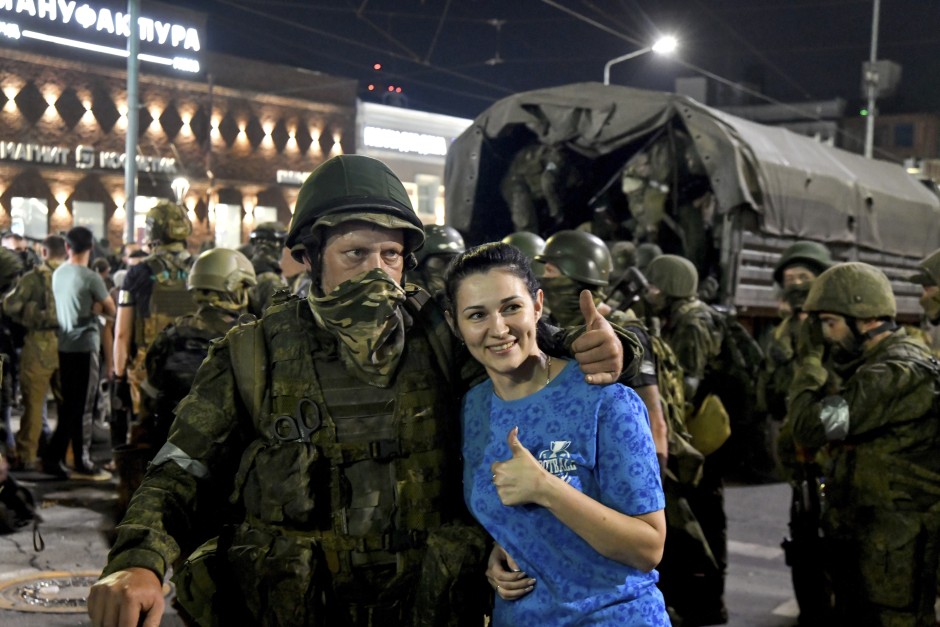
Dhe armed uprising of Russian mercenaries against their own state leadership in the middle of the Ukraine war seems to have been short-lived. Only a few hours after the start of the advance towards Moscow, mercenary chief Yevgeny Prigozhin gave the order for his notorious private army to withdraw on Saturday evening. Shortly thereafter, the mercenaries gave up the positions they had held in southern Russia. Prigozhin himself will go unhindered to neighboring Belarus, Kremlin spokesman Dmitry Peskov said on Saturday, according to the Russian news agency Interfax. As a guarantee for the free withdrawal, the former confidante of Kremlin boss Vladimir Putin has “the word of the president”.
Although Putin had announced that the insurgents would be punished that morning, the Kremlin made different statements in the evening. The fighters of the “Wagner” squad should not be prosecuted either, given their services at the front in Ukraine, as Peskov assured. Rather, some of the mercenaries would be offered an offer to sign up for service in the Russian armed forces.
Lukashenko as mediator
According to his own statements, the Belarusian ruler Alexander Lukashenko had persuaded Prigozhin to give up his uprising. Lukashenko offered to be a mediator because he had known Prigozhin personally for around 20 years, Peskov said. Prigozhin himself did not comment directly on this. It was not clear whether and when he wanted to leave southern Russia for Belarus.
Shortly before, the mercenary chief had announced that he would stop his units from advancing on the Russian capital Moscow. “Our columns are turning and heading back to the camps in the opposite direction,” he said in a voice message published by his press service on Telegram. So far, “not a drop of our fighters’ blood” has been shed. “Now the moment has come when blood could be spilled.” That’s why it’s time to turn the columns around.
At first it was not clear whether, in addition to impunity, other concessions were being made or at least promised to Prigozhin in order to stop his troops from advancing on Moscow. He was long considered a loyal companion of Putin, an untouchable figure in the Russian power structure, until the Kremlin chief called him a “traitor” on Saturday morning – and thus publicly dropped him.
Mercenaries withdraw
The “Wagner” troops gave up their positions in the southern Russian city of Rostov-on-Don, which they had held until early Sunday morning (local time). To the applause of the civilian population, the first vehicles with mercenaries left the headquarters of the Russian army, which they had occupied only hours earlier Military Command South, before later tanks and combat vehicles left the city center.
According to official information, all roadblocks on the access roads around Moscow were lifted early Sunday morning. However, the city administration continued to adhere to the work-free Monday originally decreed by Mayor Sergei Sobyanin for security reasons.
The power struggle between Prigozhin and the Russian army leadership, which had been smoldering for months, escalated on Saturday night. The 62-year-old accused Defense Minister Sergei Shoigu of ordering an attack on a military camp by the “Wagner” force, risking the deaths of a “large number” of militants. The notorious mercenary unit was involved in Putin’s war of aggression fought against Ukraine alongside regular Russian troops and, above all, played an important role in the capture of the city of Bakhmut in the Donetsk region.









